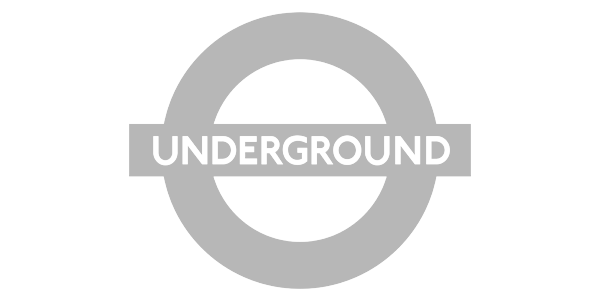Notice: Unfortunately, we are currently operating on a waitlist. Please email office@occupationaltherapy.co.uk: if you would like to be added to the waitlist.
We work with: Individuals / Organisations / Solicitors / Case Managers
Stroke
A stroke is a serious and life threatening medical condition that occurs when the flow of oxygen-rich blood to a portion of the brain is blocked. Blood carries essential nutrients and oxygen to the brain, and without this blood supply cells die or become damaged. A stroke is a medical emergency and treatment must be sought as soon as possible.
After a stroke individuals may face a range of difficulties that make it hard for them to do things they need and want to do. These difficulties can include physical problems, difficulties with memory or attention, problems with vision or sensation and emotional problems such as, depression and anxiety.
Our Occupational Therapists play an important part in stroke recovery and rehabilitation. It involves relearning everyday activities such and washing, dressing and grooming to enable individuals lead a full and independent lifestyle following a Stroke.
Problems associated with Stroke
The residual side effects of a Stoke can impact on an individual's abilities greatly and make it extremely difficult to complete the following day to day activities:
- Washing
- Dressing
- Driving
- Work activities
- Leisure activities
- Social activities
- Cooking
- Cleaning
- Climbing the stairs
- Transferring on and off chairs
Our Occupational Therapists have the skills and knowledge to identify the difficulties an individual experiences on a day to day basis following a Stoke for example, getting dressed, going the shops, and/or cooking. They provide practical solutions and will work with each individual, identifying meaning and purposeful goals that can help them maintain, regain or improve their independence.
Following this our Occupational Therapists can help individuals through:
- Practicing activities in manageable stages.
- Teaching individuals how to grade activities appropriately.
- Recommend changes, to make activities easier to complete.
- Provide aids to help individual's complete daily activities successfully.
- Provide adaptations to help individuals mobilise around their home safely
All the above modifications aim to aid an individual following a Stoke maintain and improve their independence and increase their abilities to complete everyday tasks.
How can these difficulties impact on function?
A Stoke has the potential to affect many areas of an individual's functioning and depending on the nature and severity of the Stoke it can impact on the different areas of an individual's life as follows:
Home:
- Difficulties sleeping
- Difficulties washing and dressing independently
- Difficulties cleaning
- Difficulties cooking
- Difficulties getting up in the mornings
Social/behavioural:
- Stigma
- Completing social activities
- Participating in leisure activities
- Feelings of depression and stress
- Unpredictable behaviours
- Organisational difficulties
- Reduced motivation
What exactly is a Stroke?
A stoke is the alteration or loss of bodily function caused by an insufficient supply of blood to part of the brain. The blood flow to the brain can be hampered in two main ways. This leads to the following classification of stoke:
Ischemic - 83 % of all strokes are caused by a blockage or clog inside a vessel that supplies blood to the brain. These obstructions are the result of blood clots and atherosclerosis, fatty deposits lining the wall of the vessels.
Transient ischemic attach (TIA) - this is known as a mini stroke that can serve as a warning of a major stroke. It occurs under ischemic conditions and the typical warning signs develop. Instead of progressing after a short time the clot somehow resolves itself through normal mechanisms.
Around 10% of TIA' s progress to a major stroke.
Hemorrhagic - 17 % of strokes are caused by the rupture of a weakened blood vessel, which then bleeds into the surrounding brain.
Strokes are extremely common and affect 600.000 people per year. There are 4.5 million stroke survivors living today, however it remains to be the 3rd leading cause of death in the UK.
Occupational Therapy assessments suitable for Stroke
To ensure Stoke rehabilitation is targeted correctly our Occupational Therapists will complete a serious of comprehensive assessments. These assessment allow our Occupational Therapists to gather the relevant information needed to develop appropriate treatment plans. Assessments suitable for those following a Stroke include the following:
- Cognitive assessments
- Functional assessment
- Activities of daily living assessments
- Aids and adaptations assessment
- Risk assessment
Our Occupational Therapists can also carry out non-standardised assessmentswhich involve, observing the individual completing a task, or interviewing them and their family members. Through applying both standardised and non-standardised assessments our Occupational Therapists can gather information that is pure and accurate, ensuring treatment plans are truly effective.
Occupational therapy treatment available
Our Occupational Therapy treatments aim to improve, recover, or maintain daily living skills and work skills. Our therapy is client-centred and places a premium on the progress of individual's following a Stroke. Our treatments not only increase an individual's life satisfaction but also:
- Functional independence
- Social interaction
- Increase safety
- Improve self-care
- Mood management abilities
Our Occupational Therapy treatments have been shown to be extremely effective with a growing body of evidence to support this. Our treatments are very flexible and can be made to suit each and every individual. Treatments here can be carried out on an individual basis or in a group, with the option to be conducted here in one of our clinics or in the comfort of your own home.
Summary
Individuals following a Stoke are commonly provided rehabilitation by Occupational Therapists. Our Occupational Therapy however endeavours to restore the individual's independence in activities of daily living, skills in functional performance, infuse evidence based practice to ensure that our intervention are effective and beneficial.
How to arrange to see an occupational therapist?
Wouldyou benefit from one of our Occupational Therapy assessments? Please feel free to email us with any of your enquires at office@londonot.co.uk
DO YOU STILL HAVE A QUESTION REGARDING OUR SERVICES?
London OT offer and provide a range of Occupational Therapy services for individuals with a variety of conditions.

















